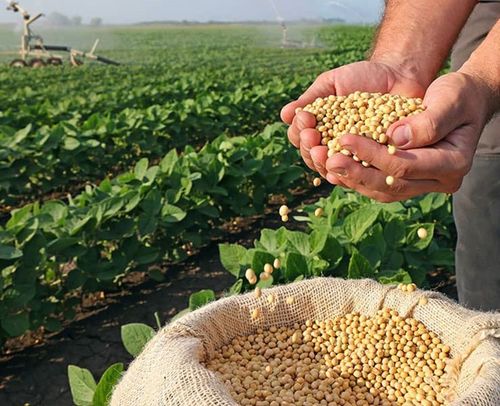Study: US oilseed industry ready to meet higher RFS obligations

SOURCE: National Oilseed Processors Association
July 10, 2024
BY National Oilseed Processors Association
A new study shows feedstocks produced within the U.S. are on track to support domestic production of an additional 1.4 billion gallons of renewable diesel and biodiesel, also known as biomass-based diesel (BBD), by 2030. Commissioned by the National Oilseed Processors Association and conducted by S&P Global Commodity Insights, the report verified that the U.S. oilseed industry is ready and able to meet higher Renewable Volume Obligations (RVOs) for 2026 and beyond as the industry has invested $6 billion to expand U.S. crushing capacity by nearly 30% relative to 2023 installed capacity.
The study evaluated the global and domestic supply and availability of feedstocks relative to the feedstock needs implied by the U.S. Renewable Fuel Standard’s (RFS) RVOs. In 2023 alone, domestic and imported feedstocks supported the production of 4.3 billion gallons of BBD, surpassing the yearly RVO targets for 2023, 2024 and 2025.
Advertisement
Advertisement
The study found that with planned expansions to U.S. oilseed processing capabilities, domestic feedstocks alone can support the production of an additional 1.4 billion gallons of BBD by 2030 while imported sources can further support an additional 1 billion gallons, for a combined total of 6.7 billion gallons of supported BBD production by 2030.
“The study’s findings make it clear that the U.S. oilseed industry is more than capable of meeting and exceeding demand for food, feed and fuel well into the next decade,” says Kailee Tkacz Buller, NOPA president and CEO. “While NOPA members were disappointed in the last RVO announcement due to lower than anticipated volumes, we remain optimistic that we now have the comprehensive data on our side to make the case that RVOs can and should be higher in 2026 and beyond. Higher RVOs will not only help achieve our decarbonization goals at a faster pace, but will provide NOPA members with the clarity and certainty we need to continue to expand our U.S. manufacturing facilities and crush more U.S. farmer-grown oilseeds.”
Advertisement
Advertisement
Today’s newly released study confirms that as demand grows and more states implement incentives and credits from Low Carbon Fuel and Clean Fuel Programs, the U.S. oilseed sector offers homegrown low carbon alternatives that will help move the U.S. away from petroleum dependency, advance air quality benefits nationwide, and strengthen the domestic rural economy.
Click here to learn more.
Related Stories
The USDA significantly increased its estimate for 2025-’26 soybean oil use in biofuel production in its latest World Agricultural Supply and Demand Estimates report, released July 11. The outlook for soybean production was revised down.
The U.S. Energy Information Administration maintained its forecast for 2025 and 2026 biodiesel, renewable diesel and sustainable aviation fuel (SAF) production in its latest Short-Term Energy Outlook, released July 8.
XCF Global Inc. on July 10 shared its strategic plan to invest close to $1 billion in developing a network of SAF production facilities, expanding its U.S. footprint, and advancing its international growth strategy.
U.S. fuel ethanol capacity fell slightly in April, while biodiesel and renewable diesel capacity held steady, according to data released by the U.S. EIA on June 30. Feedstock consumption was down when compared to the previous month.
XCF Global Inc. on July 8 provided a production update on its flagship New Rise Reno facility, underscoring that the plant has successfully produced SAF, renewable diesel, and renewable naphtha during its initial ramp-up.
Upcoming Events










